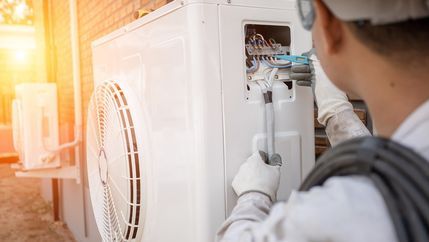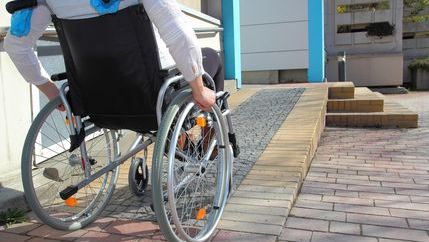
Fuel poverty affects millions of people from all different demographics and, with energy prices still 50% higher than pre-crisis levels, too many of the most vulnerable in society are living in homes that worsen their physical and mental health.
Energy efficiency
The UK housing stock is amongst the least energy efficient in Europe and the Committee on Climate Change says that energy use in homes accounts for about 14 per cent of UK greenhouse gas emissions. Non-domestic buildings account for around one-third of UK emissions from the building stock.
Effects across the UK nations
Wales has some of the oldest, coldest homes in Europe, making them more expensive to heat and keep warm. Half of adults there say they are likely to ration their energy use over the winter, and 27% have eaten cold meals rather than use their oven.
Energy Action Scotland reports that 900,000 households are fuel poor, with almost two-thirds considered to be in extreme fuel poverty. It is estimated that the health impacts cost the NHS in Scotland over £80 million every year
3.7 million households in England are judged to be living in fuel poverty, and the average reduction in energy bills needed to lift them out of that category is £417 (known as the fuel poverty gap). The energy efficiency rating of a home has a large impact on the size of the fuel poverty gap; homes in EPC bands F-G have an average gap of £1,831, compared to £328 for band D-E.
Northern Ireland differs from the rest of the UK in that it is part of a different energy market (shared with the Republic of Ireland), and the majority of homes use oil heating. Figures collected by National Energy Action (NEA) in 2023 suggest that 41% of households are in fuel poverty. 56% of people living in the private rented sector say that the health and wellbeing of someone in their household has been impacted by rising energy prices and the cost of living.
Energy efficiency has a big impact
Many homes in the UK were built decades or even hundreds of years ago with older materials and technology, which is why the average UK rating is a D. The more efficient a home is, the lower the average energy bill will be.
Data from Rightmove shows that a 3-bed semi-detached house rated EPC A could pay as little as £507 a year, whereas the same home with an EPC C could be paying £1,657 - over three times more. The least efficient homes, with an EPC G rating, could see bills over 10 times higher than the most efficient homes.
Home improvement funding
Immediate actions residents can take to help make their homes more efficient include things like adjusting their combi-boiler flow temperature, closing curtains and blinds, or applying for a smart meter. Turning the thermostat down from 22 to 21 degrees could save up to £90 per year and setting it to 18 degrees boosts that saving to as much as £260.
Larger upgrades, such as switching to a heat pump, can be costly. UK Government estimates state that an air source heat pump will cost around £12,000 on average for the heating system itself, and the installation. Schemes such as the Boiler Upgrade Scheme in England and Wales, the Home Energy Scotland Grant and PRS Landlord Loan in Scotland, and the Northern Ireland Sustainable Energy Programme offer help for homeowners and landlords.
Agents can signpost support
Targeted support for energy costs is available through different schemes across the UK.
- England - Household Support Fund (distributed through local councils)
- Wales - Discretionary Assistance Fund
- Scotland - The Scottish Welfare Fund
- Northern Ireland - there is no current scheme to help pay household energy bills, however, the Affordable Warmth Scheme provides grants to improve energy efficiency.
People with a disability or who rely on energy to help with a health condition can join the Priority Services Register, a free and voluntary system that means the most vulnerable customers get the right support from energy suppliers. Customers should contact their energy supplier to find out more.
Those struggling with debt can contact national organisations including Citizens Advice, MoneyHelper, and National Debtline for impartial advice.








